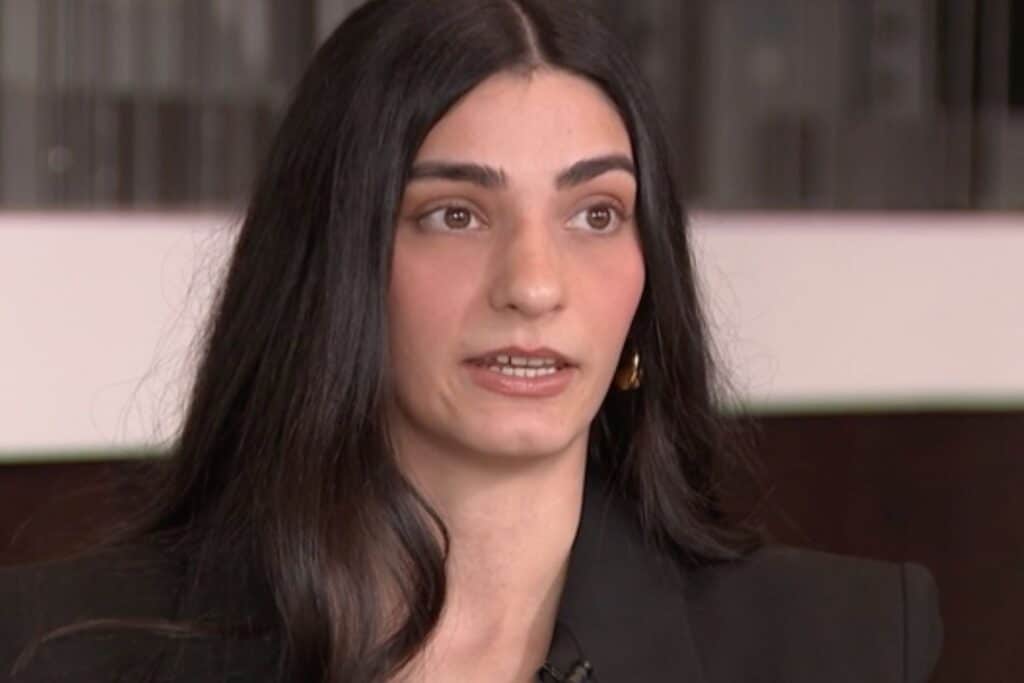A defence lawyer in Scotland has been fined for the way he cross-examined a rape victim-survivor during a criminal trial in 2022.
Last month, Lorenzo Alonzi, a criminal defence lawyer, faced a committee from Scotland’s professional body of lawyers, the Faculty of Advocates. The committee hearing came out of complaints made by Ellie Wilson, who was raped by former University of Glasgow medical student Daniel McFarlane, the High Court found in 2022.
Wilson, 26, claimed Alonzi used inappropriate and unprofessional language during cross-examination, his closing statement and the sentencing hearing. She made a total of 11 complaints to the committee at the Faculty of Advocates, six of which the committee found amounted to “unsatisfactory professional conduct”.
For example, in cross-examination during the 2022, Alonzi asked Wilson if she had narcissistic personality disorder. The court did not have any record of a diagnosis or report of Wilson having the condition. The Faculty of Advocates committee found Alonzi’s line of questioning to be “discourteous to the court” and said Alonzi “abused the privileged position” he held in proceeding with the questioning.
Another complaint Wilson raised was in reference to statements Alonzi made in the sentencing hearing, after his client, McFarlane, had been convicted of rape. Alonzi told the court McFarlane, Wilson’s former boyfriend, “fell in love with the wrong person”. Alonzi said his client did not belong in court and it was “difficult not to imagine some sense of injustice in it all”.
The committee said Alonzi’s comments were inappropriate and should never have been made, as it implied the jury had convicted an innocent man.
Although Alonzi reportedly regrets “any upset caused to the complainer as well as any perception of discourtesy to the court”, the committee said the defence lawyer “does not appear to clearly and unequivocally accept any wrongdoing on his part or offer an unreserved apology”.
The committee said Alonzi “repeatedly crossed the line” during the 2022 trial and fined him £2000 ($3845 AUD), as well as serving him a severe written censure.
Wilson received £1000 ($1922 AUD) in compensation, but told BBC News she is yet to feel “a sense of closure” toward the ordeal.
“Mr Alonzi has expressed no remorse for his actions and seems more concerned with the damage to his reputation rather than the harm he’s caused,” Wilson told BBC News.
“It’s difficult for me to feel a sense of closure when there’s no apology.”
A spokesperson from the Faculty of Advocates told BBC News that the matter remains ongoing, and “a right of appeal exists for both parties”.
What about Australia?
Cross-examination in sexual assault or sexual harassment can be an extremely traumatic experience for victim-survivors.
Experts suggest the way the Australian legal system works accounts for the distrust victim-survivors feel in contacting authorities about an experience of rape of sexual violence: according to the Australian Institute of Health and Welfare, almost 90 per cent of victim-survivors do not contact the police and proceed with a criminal investigation.
In 2017, researchers from the University of NSW compared court transcripts of sexual assault trials from the time they conducted their research, to transcripts from the 1950s. The study found contemporary trials were “much worse now than they were historically” for victim-survivors.
In particular, the researchers noted contemporary cross-examination by defence lawyers were more likely to ask the victim-survivor about behaviour leading up to the alleged assault, their family background, their dress, their appearance and more.
While there are no specifically trauma-informed guidelines for lawyers to follow when questioning victim-survivors of sexual violence, practising lawyers in Australia must follow professional conduct guidelines provided by the Bar Associations or Bar Councils in each state and territory.
In NSW, the Bar Association’s Professional Conduct Department deals with professional conduct disciplinary decisions against lawyers in the state. Disciplinary decisions are published on the NSW Bar Association website.
If you or someone you know is experiencing, or at risk of experiencing, domestic, family or sexual violence, call 1800RESPECT on 1800 737 732, text 0458 737 732 or visit 1800RESPECT.org.au for online chat and video call services.
If you are concerned about your behaviour or use of violence, you can contact the Men’s Referral Service on 1300 766 491 or visit http://www.ntv.org.au.
Feeling worried or no good? No shame, no judgement, safe place to yarn. Speak to a 13YARN Crisis Supporter, call 13 92 76. This service is available 24 hours a day, 7 days a week.


